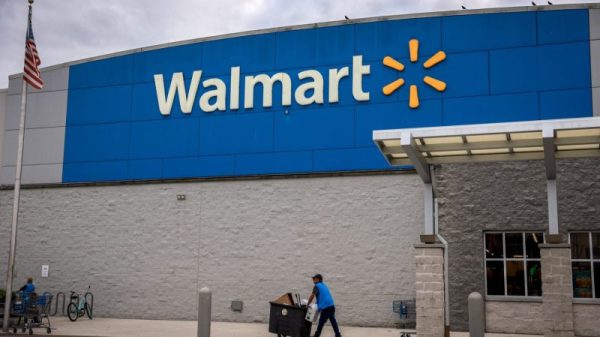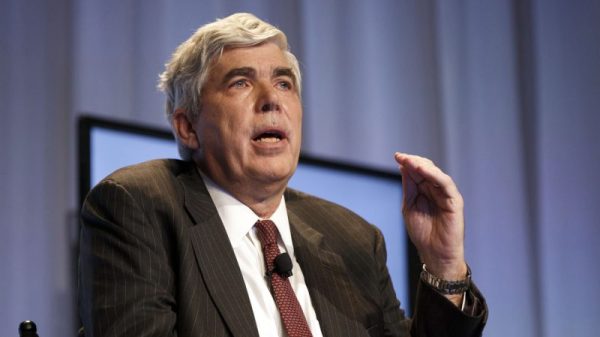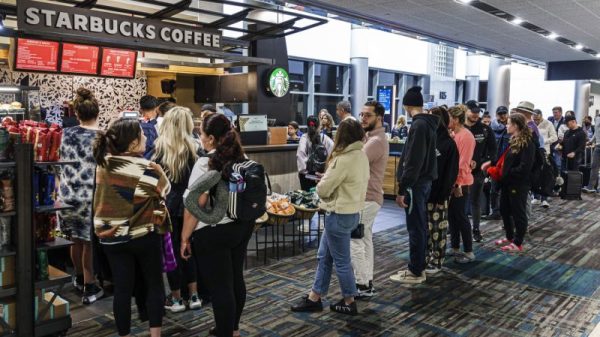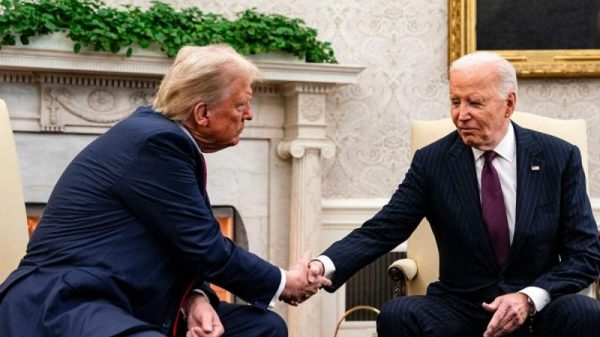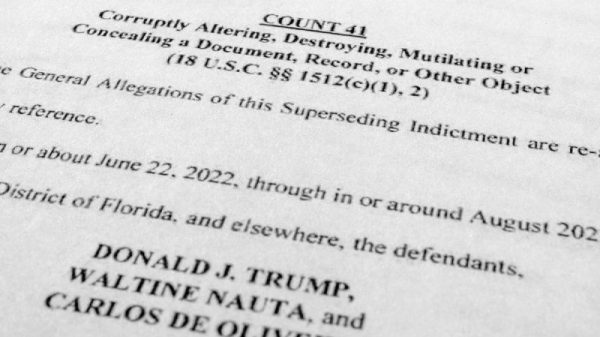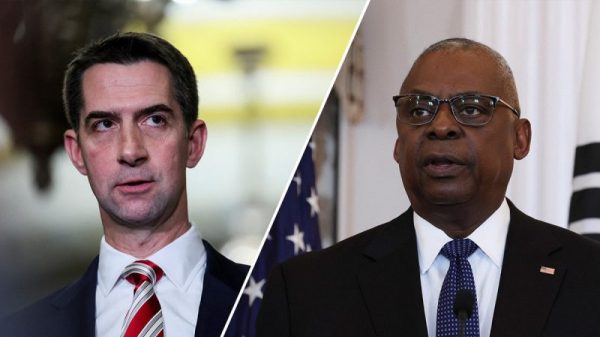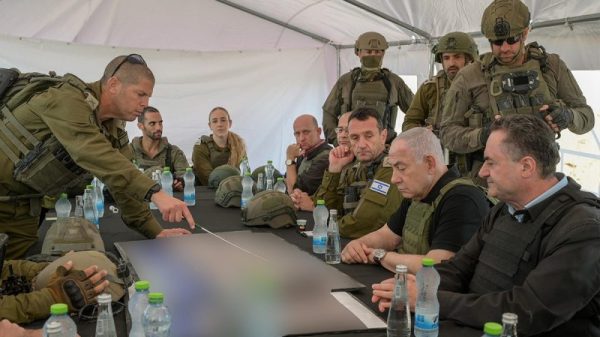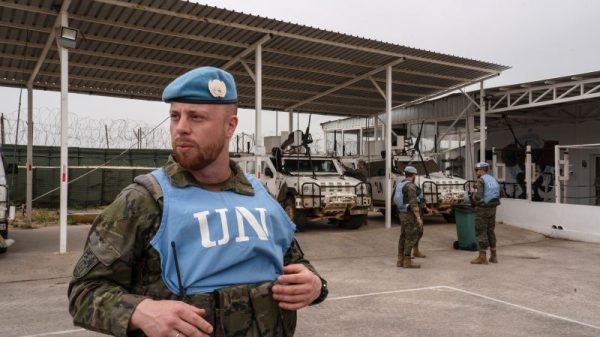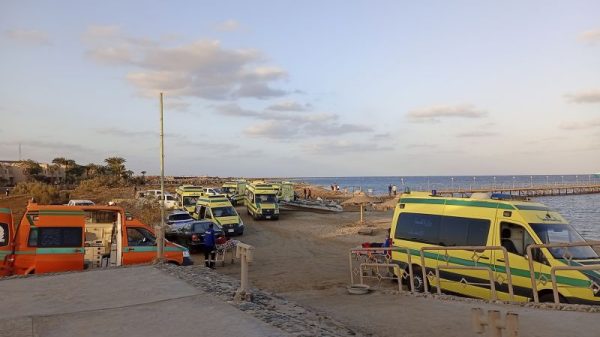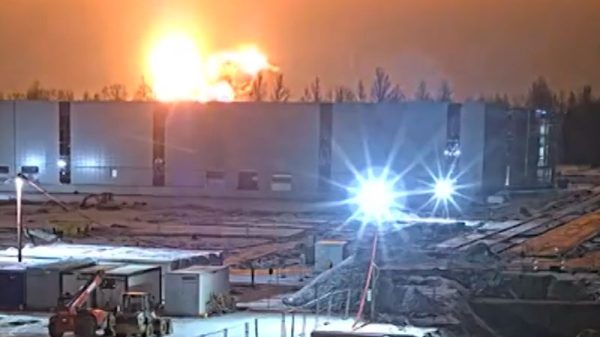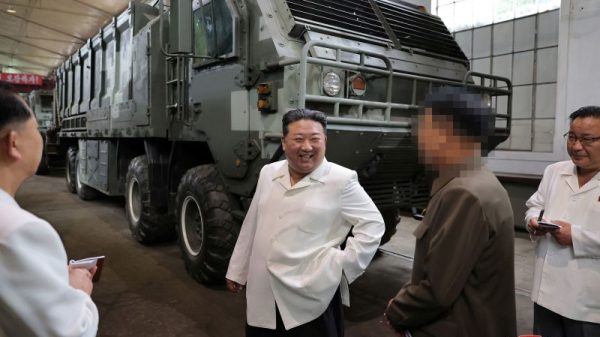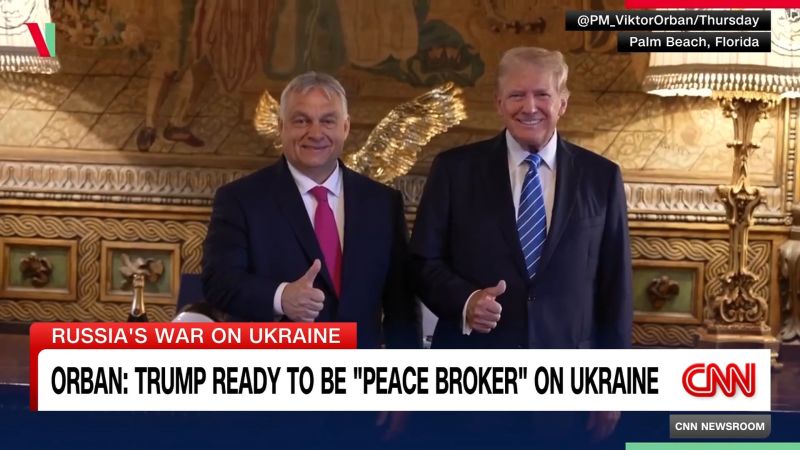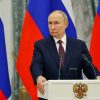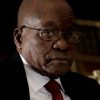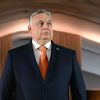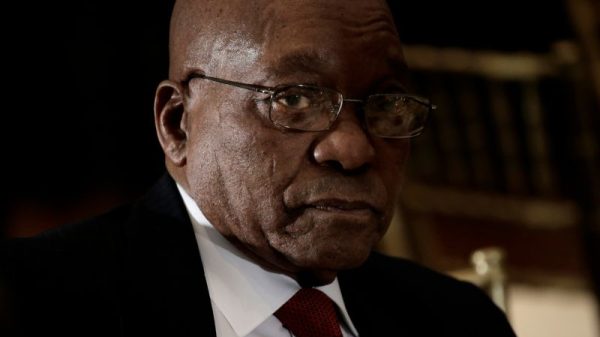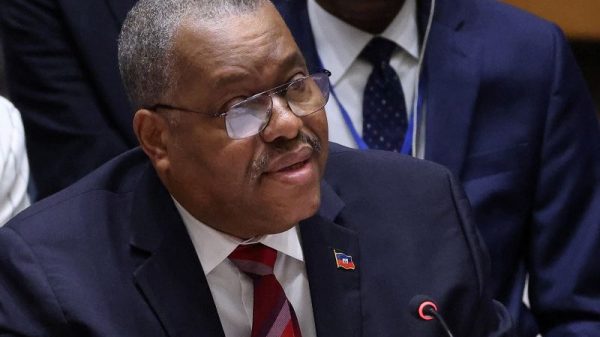Ukrainian President Volodymyr Zelensky struck an unusually subdued tone as he addressed his nation this week, hinting at a willingness to negotiate with Russia for the first time since Moscow launched its full-scale invasion more than two years ago.
Zelensky suggested Moscow should send a delegation to the next peace summit that he hopes to hold in November. Russia was not invited to the previous peace conference, held in Switzerland last month, as Zelensky said any talks could only happen after a Russian withdrawal from Ukraine.
Kyiv is currently facing the double whammy of a difficult frontline situation and political uncertainty over the level of future support from Ukraine’s closest allies.
While the progress Russian troops are making in eastern Ukraine has slowed significantly since US weapons started arriving in the country in May, it has not stopped entirely. Russia is still gaining territory, albeit at a much slower pace.
At the same time, questions are emerging about the willingness of some of Ukraine’s closest and most important allies – notably the United States and Germany – to continue pouring resources into the conflict in support of Kyiv.
Speaking to reporters on Monday, Zelensky said Ukraine was not receiving enough Western assistance to win the war, pointing out that its outcome will be determined way beyond Ukraine’s borders.
“Not everything depends on us. We know what would be a just end to the war, but it doesn’t depend only on us. It depends not only on our people and our desire, but also on finance, on weapons, on political support, on unity in the EU, in NATO, in the world,” the president said.
Former US Ambassador to Ukraine John Herbst said it was plausible Zelensky’s shift in tone was a reaction to the events unfolding in the United States, where former President Donald Trump on Monday announced a staunch critic of sending support to Ukraine, JD Vance, as his running mate.
“It has to be (a) reasonable peace, which does not permit Russian occupiers to continue to torture, repress and murder the people of Ukraine who are being occupied,” he said. Russia has repeatedly denied accusations of torture and human rights abuses in Ukraine despite overwhelming evidence to the contrary.
Trump and Zelensky spoke on Friday in what Trump called a “had a very good phone call”.
The former president said he would “bring peace to the world and end the war that has cost so many lives” while Zelensky said the two discussed “what steps can make peace fair and truly lasting.”
Unacceptable terms
Russian President Vladimir Putin has repeated several times in recent months that he would be willing to negotiate with Ukraine – albeit on terms that remain completely unacceptable to Ukraine and its Western allies.
Putin said Russia would end its war in Ukraine if Kyiv surrendered the entirety of four regions claimed by Moscow: Donetsk, Luhansk, Kherson and Zaporizhzhia. Large swathes of these regions remain under Ukrainian control, so he is essentially asking Ukraine to give up territory without a fight. Putin also said any peace deal would require Ukraine to abandon its bid to join NATO, prompting Kyiv to call the proposal “offensive to common sense.”
Orysia Lutsevych, deputy director of the Russia and Eurasia Programme at Chatham House, said that considering Putin’s public demands, Zelensky’s words were likely meant as a message to the rest of the world.
Lutsevych believes Putin has stepped up his calls for negotiations because he knows his window of opportunity may be closing.
Despite being considerably bigger and stronger than Ukraine, Russia has not managed to fulfil its territorial goals – even when Kyiv was receiving only limited help from the West. Moscow’s initial attempt to take the capital ended up in a defeat and the front lines have not moved considerably in more than a year.
Uncertainty ahead
New US military assistance started reaching the front lines in Ukraine in May, after months of delays caused by political deadlock in the US Congress. At the same time, Ukraine finally received permission from some Western nations to use their weapons to strike targets inside Russia – although only in limited circumstances and in areas near the border with Ukraine.
While this has helped slow Russian progress and averted a possible reoccupation of the Kharkiv region, Ukraine is still defending territory, rather than pushing forward to reclaim areas currently under Russian occupation.
“Ukrainian forces are going to have to accumulate equipment, material and manpower for a future counteroffensive operation, and that’s part of the Russian calculus that we are seeing – the Russian military command very much appears to be pursuing a strategy where they are conducting consistent, grinding offensive operations throughout the entire front line,” said Riley Bailey, a Russia analyst at the US-based Institute for the Study of War.
By making gradual, creeping advances along the more than 600-mile-long (1,000 kilometer) front line, Russia is forcing Ukraine to commit to defensive operations rather than gear up for a counteroffensive, Bailey said.
“They will need to degrade the Russian forces and capabilities that are part of the offensive operations, which would bring some more flexibility and ease some of the pressure,” Bailey said. “Ukraine can then start making some operational choices that it hasn’t been able to make in the past few months.”
But the success of any future Ukrainian counteroffensive will depend primarily on how much support it receives from its Western allies going forward. Zelensky said this week that the current level of support was enough to hold off further Russian advances, but not win the war.
This week brought more uncertainty on that front, as Trump announced that he had picked Vance as his vice-presidential nominee. Vance has previously suggested Ukraine should negotiate with Russia because the US and other allies do not have the capacity to support it. Trump himself has claimed he would “end the war in one day” and said the US shouldn’t be sending money to Ukraine with no strings attached.
At the same time, it emerged that Germany, which is among Ukraine’s biggest supporters, plans to halve its military aid to Ukraine next year – although it suggested Ukraine should be able to meet the bulk of its military needs with the $50 billion in loans from the proceeds of frozen Russian assets approved by the G7 last month.
If the worst-case scenario for Ukraine was to materialize – if the US stopped providing aid, Europe didn’t step up its assistance and Ukraine wasn’t able to access the frozen Russian assets – Russia would likely start to make much bigger gains.
Herbst said that if the Democrats win the US presidential election in November, the current US policy of supporting Ukraine is likely to continue, with more aid flowing in.
“If Trump were to win, we don’t know what he will do. But we know that there are serious people on his national security team who will understand that Putin is a direct threat to American interests and that it is important or critical to the US that Putin lose in Ukraine,” he added.
But Herbst said there is one more factor which could convince a possible Trump administration to keep helping Ukraine.
“If his team cuts off aid, and Ukraine collapses, that will be a major defeat to the United States, caused by the Trump team. And a defeat that would dwarf the embarrassment and the damage done by Biden’s incompetent withdrawal from Afghanistan. And there will be people on his team that will understand that,” he said.
Analysts expect the Ukraine aid package – the more than $60 billion approved by the US Congress earlier this year – to last Kyiv about a year to 18 months, which could be enough time for Ukraine to regroup and launch a new counteroffensive.
Lutsevych said that Ukraine desperately needs to make battlefield gains and then see if there is a real desire by Russia to negotiate – which she says doesn’t currently come across as genuine.
“But what evidence do we have that Russians are willing to negotiate? Putin is putting his country on a total war footing,” she said, adding that the war will likely end only if Moscow begins to feel threatened.
“I think this war will end when Putin begins to feel that the Russian control over Crimea is threatened.”
Ukraine has already stepped up its attacks against the peninsula, illegally annexed by Russia in 2014 and home to Moscow’s Black Sea fleet. Kyiv claims its military has struck and sunk or severely damaged several Russian warships in the area, disabling at least a third of Russia’s Black Sea fleet.
Ukraine has also managed to hit and temporarily shut down the Kerch Strait bridge that connects Crimea with Russia on several occassions. The southern front – which stretches from the Donbas in eastern Ukraine across the Kherson and Zaporizhzhia regions, with Russian-occupied territory creating a land bridge between Russia and Crimea – will be a key target.
While Zelensky’s tone might have shifted this week, his position on what a peace deal should look like hasn’t, or at least not publicly. The majority of Ukrainians do not want the government to give up any territory at all.
“Right now, it is politically difficult, if not impossible, to state that a peace can be achieved without the full return of all Ukrainian territories. But that doesn’t mean that over time, it couldn’t become possible,” Herbst said.
He believes Kyiv could “speak with some justification of Ukrainian victory in this war,” even if Ukraine doesn’t manage to get back all of its pre-war territory – as long as it reclaims enough to be an economically viable and secure state.
“But for it to be a secure state, especially in those circumstances, it must be a member of NATO. I believe that if this were truly on the table, meaning with the full faith and power of the United States behind it, this in theory could lead to a stable peace,” he said.
“It wouldn’t be a just peace, because you’re still consigning millions of Ukrainians to the tender mercies of a vicious regime of the Kremlin, which has shown it has no love — and that’s a very polite way to phrase it — for Ukrainians who believe they are Ukrainians, and not little Russians.”

